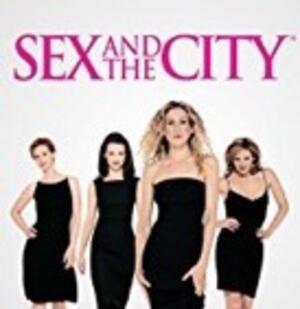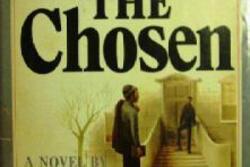Feminism in Sex and the City: Looking Back and Moving Forward
New York City. Quippy dialogue. Journalism. Fashion and shoes galore.
What’s not to love about Sex and the City?
From the first episode, I was hooked. My friends introduced to me to the show early last year, and I quickly sped through all six seasons, ending each episode eager to see what would come next for Carrie, Charlotte, Samantha, and Miranda.
I appreciated the sex-positive, independent women who reveled in career advancements and strong female friendships. Even Charlotte, the woman initially most intent on marrying for good breeding and money, and also with the most old-fashioned outlook on sex, eventually revealed herself to be extremely self-empowering and accepting of her sexuality.
As much as I love the show and the characters, though, I couldn't help but wonder: how feminist is Sex and the City, really?
I figured the most straightforward way to answer this question would be to analyze the show using the Bechdel test. The Bechdel test, a feminist barometer of sorts, requires at least two named women in a work of fiction to communicate with each other about something other than a man.
Unfortunately, Sex and the City seems to fall short of this simple criteria the majority of the time. Alison Bechdel, the creator of the test, even admitted in an interview with HuffPo that while she calls herself the “number one fan” of the show, “it doesn’t pass the test, really.”
While the four women are individually successful and largely independent, the show mainly focuses on their boyfriend troubles. The women should be portrayed celebrating their personal power––power that doesn’t stem from or rely on any man! As Miranda so articulately put it: "How does it happen that four such smart women have nothing to talk about but boyfriends?”
Not only does Sex and the City pretty much fail the Bechdel test, but it also fails when it comes to intersectional feminism. The show centers around well-off, cisgender, white women, and doesn’t include any prominent characters who are women of color. It also promotes the “gay best friend stereotype,” using the two main gay characters as catalysts for cute conversations, not as full people.
Recently, a “Woke Charlotte” meme was created in an attempt to correct the show’s less progressive aspects. For example: in one episode Samantha says, “I am paying a fortune to live in a neighborhood that’s trendy by day and tranny by night,” to which Woke Charlotte responds, “The correct term is ‘trans’ and trans sex workers deserve respect. After all, they’re not the ones who are gentrifying the neighborhood. Please check your cisgender privilege, Samantha.” In another episode, Carrie says “I’m not even sure bisexuality exists. I think it’s just a layover on the way to Gay Town.” Woke Charlotte returns, “Bisexuality is a real sexual orientation. It’s not ‘just a phase’ and as a sex columnist you have a responsibility to educate yourself on queer issues.” While I wish that these dialogues had been part of the original show, I’m glad that “Woke Charlotte” is helping people recognize problematic aspects of Sex and the City now.
For all of Sex and the City’s errors, of which there are plenty, I do feel empowered when I watch Charlotte reclaim her life, or when Miranda is unabashedly proud of her success at work, or when Carrie uses fashion for self-expression and liberation, or when Samantha is unapologetic and enthusiastic about her own decisions–even in the face of all the slut-shaming. Sure, the show isn’t perfect, and we definitely need “Woke Charlotte,” but, as a young feminist, I identify with and see value in many aspects of this show. If anything, it’s a good reminder that we’ve come a long way, but there’s always more work to be done.
This piece was written as part of JWA’s Rising Voices Fellowship.








Love this! I'll have to watch the show